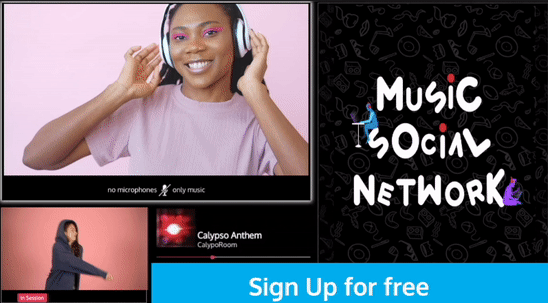Unveiling Gen Z's World: The Transformative Impact of Live Streaming
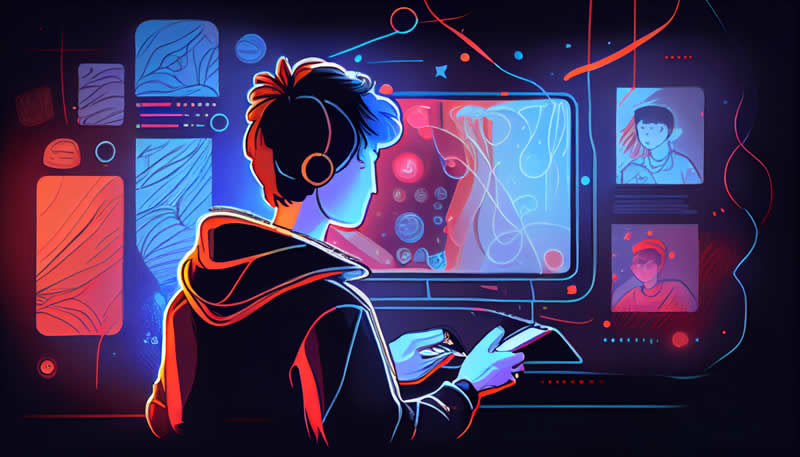
Table of content
Unveiling Gen Z's World: The Transformative Impact of Live Streaming - Introduction
In "Unveiling Gen Z's World: The Transformative Impact of Live Streaming," we delve into the dynamic and ever-evolving realm of video live streaming—a phenomenon that has reshaped the digital landscape in recent years.
This exploration takes us through the myriad ways in which platforms like Facebook, X, Instagram, TikTok, and more have become stages for a diverse array of content, from comedy shows to live gaming sessions.
Intriguingly, this new era of digital engagement has opened avenues for individuals to monetize everyday activities, even as seemingly mundane as sleeping, as reported by The Verge.
At the heart of this revolution is Generation Z, for whom live streaming is not just a form of entertainment but a fundamental aspect of their social fabric.
This article examines how early exposure to live streaming has uniquely positioned Gen Z to redefine communication norms and influence societal interaction.
As we analyze the growing prominence of live streaming and its magnetic appeal, we also consider the broader implications of this shift for future generations.
Join us as we explore the intricacies of this digital phenomenon and its profound impact on the way we connect, share, and experience the world around us.

KEY TAKEAWAYS
Rising Popularity of Live Streaming: Live streaming is becoming increasingly popular, especially among younger generations like Gen Z and millennials, who prefer digital engagement over traditional social interactions. This shift is driven by the desire for real-time, authentic experiences, making live streaming an integral part of the cultural fabric of these generations.
CalypsoRoom's Unique Contribution: CalypsoRoom is pioneering in the live streaming space by providing a platform where users can connect through music, using webcams to share real-time musical experiences. This approach exemplifies the evolving trend of online social interactions, where experiences are shared collectively, blurring the lines between online and offline connections.
Influence on Music and Celebrity Interaction: Platforms like TikTok are revolutionizing music consumption and artist discovery, allowing artists to gain fame with minimal PR efforts. Live streaming on platforms like Instagram provides fans with direct access to celebrities, creating a constant, more intimate connection and reshaping the nature of celebrity-fan interactions.
Diverse and Interactive Live Streaming Platforms: Platforms such as YouNow, UpLive, and Twitch offer dynamic interactions, extending beyond communication to activities like collaborative gaming and real-time conversations. The interactivity and engagement provided by these platforms are key factors in retaining the interest of Gen Z users, who value interactive and engaging experiences.
Live Streaming as a Bridge for Connections: Live streaming serves as a powerful tool for bridging the gap between individuals and their idols, offering a sense of participation and inclusion. This medium allows for an unprecedented level of interaction, turning distant figures into accessible, relatable personalities and fostering unique bonds in the digital world.
The Escalating Prominence of Live Streaming in the Digital Age
Live streaming is rapidly gaining notoriety, chiefly because social media platforms, both established and emerging, are tirelessly enhancing the intimacy of online interactions.

In this era where online presence is vital, understanding and ensuring security and privacy online has become a paramount concern for both users and platforms alike.
This shift towards more screen-focused interaction is backed by research, as highlighted in a Connected study, showing that Gen Z and a significant portion of millennials prefer to engage with friends digitally.
This trend aligns with findings from MarketWatch, which reveals that the average teenager spends upwards of seven hours daily on digital devices.
The intersection of music and technology takes an exciting turn with the integration of music in the metaverse, opening new avenues for immersive musical experiences.

Platforms like TikTok, as noted by Hypebot, are at the forefront, revolutionizing music consumption and artist discovery with minimal PR efforts.
Moreover, live videos on Instagram and similar platforms grant fans unprecedented access to their favorite celebrities' lives, creating a constant and direct connection.
When coupled with the endless variety of personalized content available online, it's no wonder why Gen Z users find it nearly impossible to put down their smartphones.
These platforms have not only transformed the landscape of personal entertainment but have also reshaped the very nature of celebrity-fan interaction.

The Irresistible Lure of Live Video Streaming
The allure of live video streaming lies in its unpredictable and immersive nature, making it irresistibly captivating.
Unlike pre-recorded content, live streaming thrives on spontaneity and the excitement of the unknown, offering an experience that's both unscripted and authentic.
This element of surprise, coupled with the opportunity to be part of a shared, real-time experience, has firmly embedded live video into Gen Z's cultural fabric.
Live streaming's appeal transcends traditional social media and texting, emerging as the preferred medium of communication among the younger generation.
This shift is evident when considering the significant amount of time teens and young adults dedicate to watching their favorite YouTubers and game streamers.

As Gen Z matures and enters the workforce, the influence of their communication preferences is likely to reshape societal norms.
Live streaming is not just a passing phase but a transformative force, redefining how we connect, share, and experience content together.
With its growing prominence, live video streaming is set to continue influencing and shaping the ways in which Gen Z interacts, both with each other and the broader society.
The New Social Sphere: Online Connections in the Era of Live Streaming
The rise in popularity of live video streaming underscores a growing desire for more immersive online interactions.
In this evolving digital age, people are seeking ways to connect that go beyond traditional video chats or passive YouTube viewing.
Platforms like CalypsoRoom are at the forefront of this trend, offering a unique space where individuals can connect through the power of music.
Platforms like CalypsoRoom are pioneering the way for connecting through webcam, allowing users to share real-time music experiences from anywhere in the world.
On CalypsoRoom, users join together, listening to music while connected via webcam, creating a shared experience that transcends physical boundaries.
This desire for constant, interactive connection is especially pronounced among Gen Z, a generation for whom the digital world is second nature.
For them, tuning into a stranger's live stream is as commonplace as meeting a friend for coffee.
This shift reflects a broader cultural change where the lines between online and offline social interactions are increasingly blurred.
Our Article called “GenZ and The Internet“ delves into how this digitally native generation navigates the online world, setting trends and shaping future digital interactions.
The dynamics between online vs offline friends are increasingly becoming a topic of interest, particularly in understanding Gen Z's social circles and interactions.
They recognize the intrinsic human desire to connect with loved ones and are evolving to facilitate these connections in more meaningful, engaging ways.
CalypsoRoom's model of bringing people together through live, shared music experiences exemplifies this new era of social interaction, where moments are not just shared but experienced collectively, regardless of physical location.
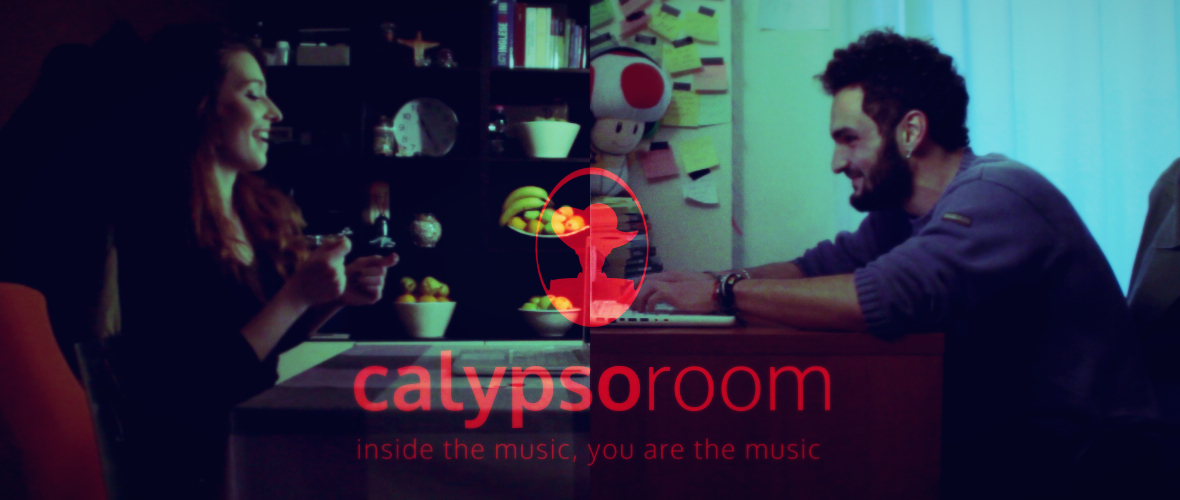
Diverse Interactivity: The Unique Appeal of Live Streaming Platforms
The landscape of live streaming platforms is rich and varied, offering unique modes of interaction that resonate with audiences globally.
Platforms such as YouNow, UpLive, and Twitch have carved their niches by facilitating dynamic interactions between streamers and their viewers.
These interactions aren't just limited to basic communication; they extend to engaging activities like answering live questions, the exchange of virtual gifts and monetization options, collaborative gaming sessions, and real-time conversations.
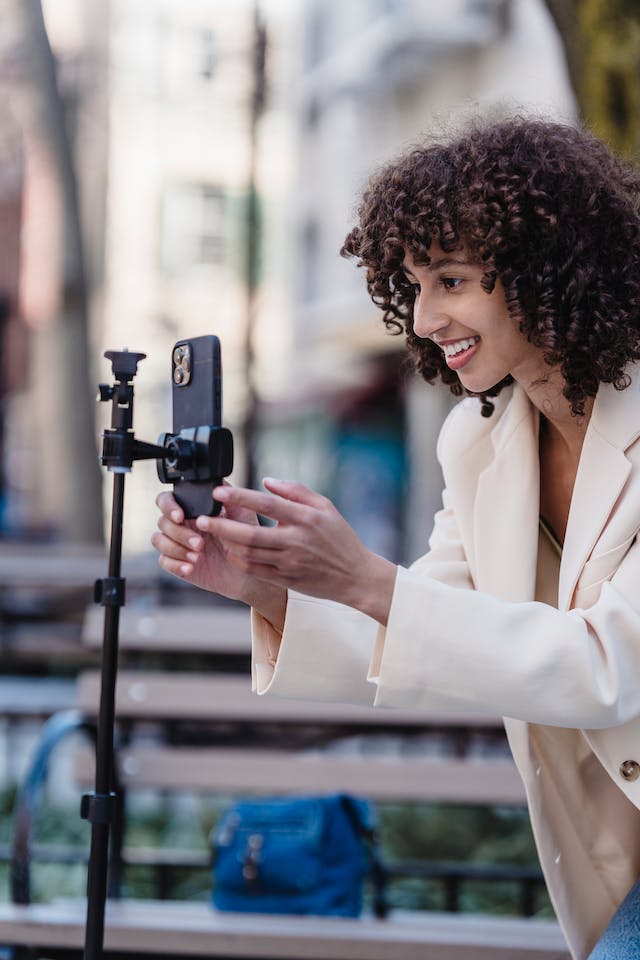
Major players in the tech industry, such as Instagram and TikTok, command a significant share of online users, each carving out its own identity in the way content is delivered and experienced.
Understanding why music streaming platforms are becoming popular among Gen Z reveals the shift in music consumption habits and the factors driving this change.
This uniqueness is a significant factor in why Gen Z remains deeply engrossed in their smartphones, eagerly adopting the latest trends as these platforms evolve and gain mainstream popularity.
It's this constant innovation and personalized interaction that make live streaming platforms a magnet for Gen Z, keeping them glued to their screens and continually exploring new digital frontiers.
The article on “The Evolution of Music Consumption" provides an in-depth look at how our ways of enjoying music have transformed drastically over the years.
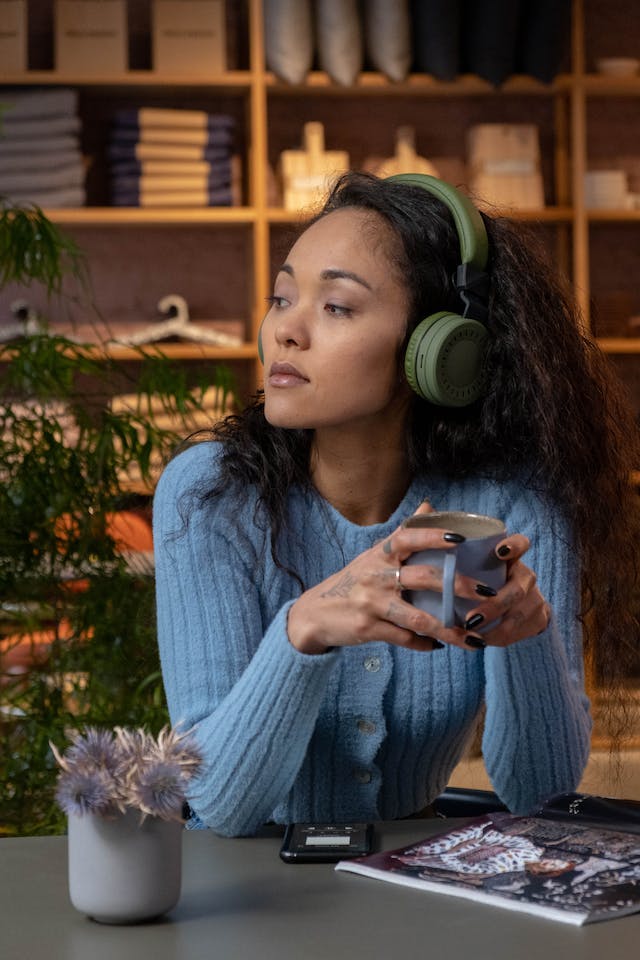
Bridging the Gap: Live Streaming's Role in Fostering Connections
In today's digital era, live streaming has emerged as a powerful tool that bridges the gap between us and those we admire.
This medium allows for an unprecedented level of interaction with our idols and figures of influence, cultivating a sense of inclusion that was previously unattainable.
Through live streaming, we don't just observe; we become part of their world, sharing in their experiences in real time.

Whether it's watching a favorite gamer navigate through an intense session on Twitch or following a day in the life of a vlogger on YouTube, live streaming imbues these experiences with a personal touch.
It's not just about watching content; it's about experiencing moments alongside others, feeling connected and involved.
This immediacy and intimacy of live streaming foster a unique bond, turning distant figures into accessible, relatable personalities.
In a world where digital connections are increasingly valued, live streaming stands out as a medium that truly brings us closer to the people who inspire us.
The Future of Live Streaming: A Constant in Our Digital Diet
This innovative technology has not just revolutionized the way we consume content, but it has also transformed our modes of connection and interaction.
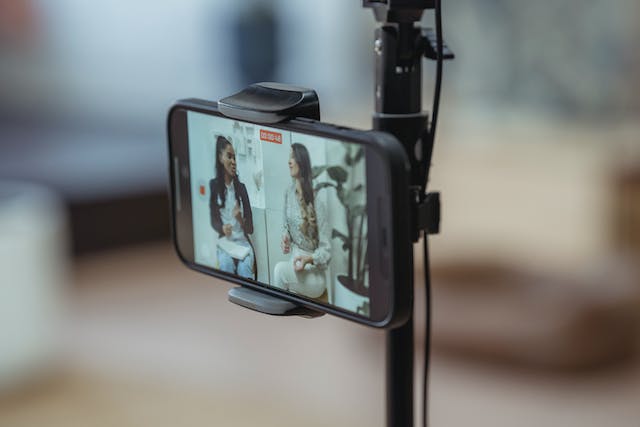
Live streaming has become a staple in our everyday lives, especially for Gen Z, who have seamlessly integrated this medium into their daily routines.
The embrace of live streaming by this generation is evident in the diverse array of content creators they follow, ranging from charismatic vloggers on YouTube to the dynamic world of gamers on Twitch.
This generation's affinity for live streaming goes beyond mere entertainment; it reflects a fundamental shift in media consumption habits.
Individuals are increasingly favoring binge-watching sessions over scheduled TV programming, finding that mobile devices cater perfectly to this new preference by offering the freedom to consume media anywhere, at any time.
As we peer into the future, predicting the exact trajectory of live streaming can be challenging. However, one thing is certain: as technology continues to advance and evolve, so too will our behaviors and preferences.
Live streaming is not just a fleeting trend; it is a transformative force that is reshaping the very fabric of how we interact with media and each other.
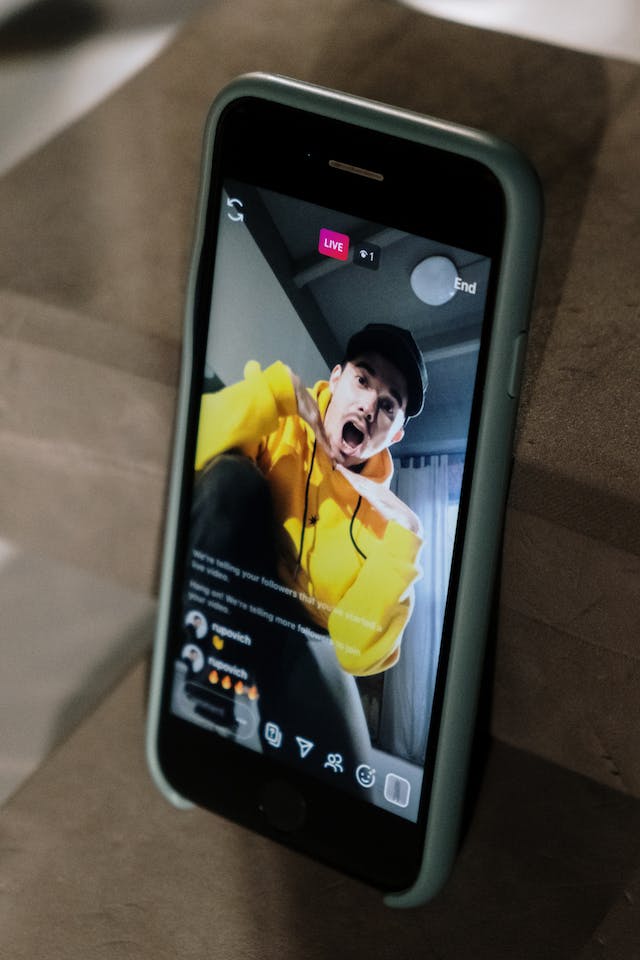
Unveiling Gen Z's World: The Transformative Impact of Live Streaming - Conclusion
As we reach the end of our journey through the captivating world of live streaming and its profound impact on Generation Z, it's clear that this digital revolution is more than just a trend—it's a pivotal part of our evolving social landscape.
Live streaming has not only redefined how we consume content and interact with each other but has also paved the way for innovative platforms like CalypsoRoom.
CalypsoRoom offers a unique, shared music experience, connecting people across the globe through the power of music and live interaction.
We invite you to become part of this vibrant community. Join CalypsoRoom to discover a new way of experiencing music and forming connections in real-time.
It's more than just a platform; it's a space where music, interaction, and culture converge.
Visit our blog for more enlightening articles like this, and join us in navigating the exciting possibilities of the digital age.
Thanks for reading,
The CalypsoRoom Team
Frequently Asked Questions (FAQs)
What platforms do Gen Z prefer for live streaming?
Generation Z tends to gravitate towards platforms like TikTok, Twitch, and Instagram for live streaming. These platforms offer a mix of entertainment, interactivity, and social connectivity that appeals to their preferences.
How does live streaming impact Gen Z's buying behavior?
Live streaming significantly influences Gen Z's buying behavior, as they often rely on streamers and influencers for product recommendations and reviews. This makes live streams a powerful tool for marketing and promoting new products to this demographic.
What types of content are most popular among Gen Z on live streaming platforms?
On live streaming platforms, Gen Z predominantly enjoys content related to gaming, music, lifestyle vlogging, and interactive Q&A sessions. This content is popular due to its entertainment value and the opportunity for real-time interaction.
How much time does Gen Z spend on live streaming daily?
Gen Z typically spends several hours daily on live streaming platforms, with some reports suggesting an average of up to three to four hours. This high engagement reflects their preference for interactive and on-demand content.
What are the differences between Gen Z and other generations in live streaming habits?
Gen Z's live streaming habits are characterized by higher engagement and a preference for interactive, real-time content, unlike older generations who might favor more traditional, passive forms of media consumption. Additionally, Gen Z tends to integrate live streaming more seamlessly into their daily routines and social interactions.
back
Written by CalypsoRoom Editorial Team
The CalypsoRoom Editorial Team is a skilled and diverse group of writers, researchers, and industry specialists who have access to Calypso's data and information in order to give you broad knowledge about the music industry as well as helpful advice to help you manage your music and dancing career.
Updated November 2023
Company number: 681223
James's Walk 31, Dublin, Ireland
contact@calypsoroom.com
+353 (89) 435 8928




